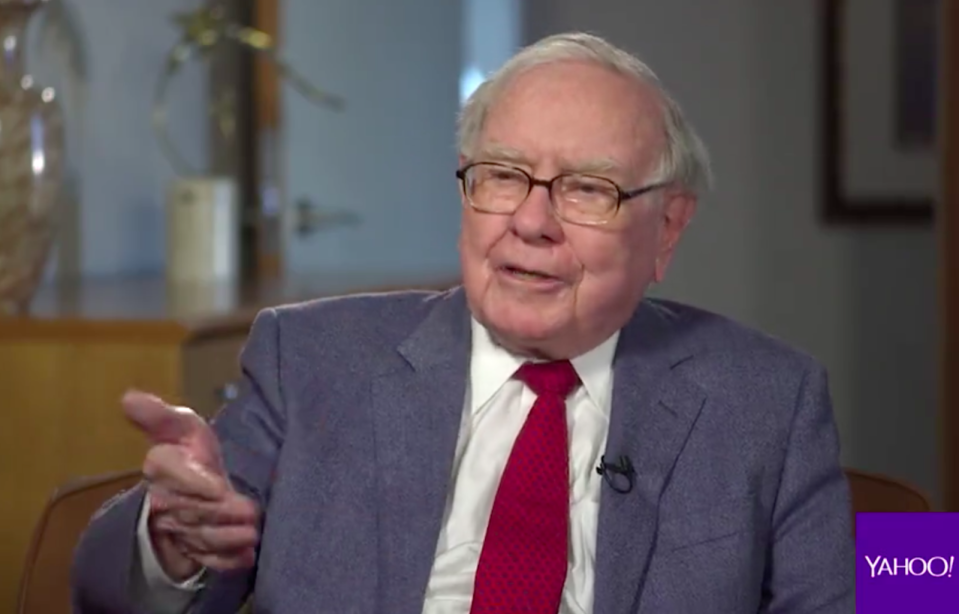How Warren Buffett and Jeff Bezos beat Wall Street
Do you know about the Wall Street shuffle?
I’m talking about the intricate, expensive and time-consuming shimmy public companies do with Wall Street. As in the hundreds of hours CEOs, CFOs and investor relations professionals spend wooing and spinning analysts to juice the stock price.
It’s not a pretty dance to tell the truth—never mind problematic—for a number of reasons. First, why should analysts get special treatment or more information than shareholders? And second and even more fundamentally, shouldn’t business results alone drive the stock price?
What’s interesting here is that there actually seems to be a correlation between the most successful companies and those that don’t cozy up to Wall Street. In other words many of the companies that disco the least, seem to do the best. Companies like Apple and Netflix for instance, while not completely eschewing Wall Street, certainly do it on their own terms.

And there’s Amazon (AMZN) and Berkshire Hathaway (BRK-A, BRK-B), the two companies that seem to dance the least with Wall Street. Is it a coincidence that they are two of the nation’s very best long-term performing companies? Of course not. Though distancing themselves from the Street doesn’t in and of itself cause great performance, it does show that the CEOs of these two companies, Jeff Bezos and Warren Buffett, prioritize long-term objectives of the business over Wall Street relations.
I asked Buffett about this and he responded in some length by email:
“We do not do guidance, analysts days, analysts calls and have no calls with analysts after the earnings releases. We also do not do meetings or calls with large institutional investors.
“Between the annual meeting, the annual report, the 10-K’s and 10-Q’s and my appearances on CNBC (always a three-hour session right after the annual report comes out), Charlie and I feel we give more shareholder-useful information than virtually any other company. We also, of course, never make earnings forecasts either internally or externally.
“In our various forums, the goal is to convey the information that I would offer to my two sisters if the three of us owned the company. They were intelligent but not financial types Their Berkshire ownership represented virtually 100% of their net worth and they had been away for a long time and now wanted to know the status of their investment and its prospects.
“I think our communication policies are consistent with obtaining the shareholder base that we wish to have as co-owners. In effect, all of our shares are going to be held by someone. If it were a partnership, we could control who joined. As a public company we can influence who joins us – and doesn’t join us – through our policies, communications and performance. And we try to do so.”
Amazon is a bit different from Berkshire as it does do guidance and analyst calls. When I asked Amazon exactly what it does or doesn’t do when it comes to working with Wall Street, company spokesperson Sam Kennedy emailed me back, writing, “Hey Andy, thanks for reaching out. We don’t have anyone available at the moment but appreciate your interest.” (Which in a way speaks to the point, right?)

What we know Amazon doesn’t do though, is kowtow to Wall Street expectations of growth, especially when it comes to its bottom line. The Street wants to see fat, growing net income and it wants that growth to be as consistent as possible. Bezos (who worked at hedge fund D.E. Shaw in New York City in his 20s), for his part has consistently ignored those entreaties, especially early on in the company’s history when he was so keen on scaling the business.
More recently, Bezos explained in Fortune that: “We believe in the long term, but the long term also has to come.” Fortune wrote that Bezos explained that “periodically Amazon wants to ‘check in’ with its ability to make money.”
“Check in.” Can you imagine any other CEO saying that? That means Bezos likes to turn on the profit spigot when he sees fit, but not on a regular basis, and not when the Street wants it or expects it.
Does Buffett have a take on how Bezos has run Amazon?
He does.
“I think Jeff has managed his company exactly the right way,” Buffett wrote me.
Now that is two guys dancing to the beat of their own drum—with happy shareholders moving along to the music.
—
Andy Serwer is Yahoo Finance Editor-in-Chief. Read more:
